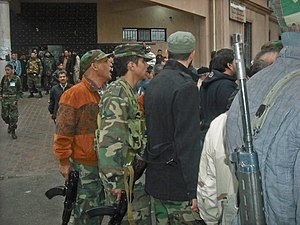
Libya’s Zawiya Refinery has come to a standstill after the declaration of force majeure, compounding the nation’s already fragile economic landscape. The move has disrupted operations at the key facility, which is crucial for the country’s domestic fuel supply and its oil export revenues. As the impact of the refinery’s shutdown reverberates, concerns are rising over how long Libya can weather these economic shocks.
Located on the Mediterranean coast, the Zawiya Refinery has long been a cornerstone of Libya’s oil industry, processing substantial volumes of crude oil into refined products such as gasoline, diesel, and jet fuel. Its operations are vital not only for the local market but also for meeting the country’s obligations in the international energy trade. The refinery’s force majeure announcement came after escalating tensions involving political instability, a challenge that has frequently plagued Libya’s energy sector.
The announcement of force majeure, a legal declaration that frees a company from contractual obligations due to unforeseen events, indicates severe operational disruption. The state-run National Oil Corporation (NOC) confirmed that while the refinery had suspended some of its refining activities, the exact duration of the halt remains unclear. The NOC cited security and operational issues stemming from the volatile political environment as factors leading to the disruption. These factors, compounded by logistical difficulties, have contributed to the current uncertainty in the energy market.
Zawiya’s shutdown is especially worrying because it is one of the country’s largest refineries, capable of processing up to 120,000 barrels of crude per day. Moreover, the facility is part of a broader energy infrastructure that includes the country’s oil terminals and storage units. A prolonged halt could cause severe fuel shortages within Libya and disrupt export schedules. This is a particularly critical issue for the Libyan economy, where oil exports represent the majority of the nation’s revenue.
Libya has struggled with chronic instability since the fall of Muammar Gaddafi in 2011. The country has witnessed years of civil unrest, competing political factions, and armed conflicts, all of which have destabilized the oil sector. The situation worsened when rival governments took control of different regions, leaving the oil sector fragmented and vulnerable to frequent shutdowns. The NOC has, at times, been forced to operate under duress, with various armed groups attempting to control oil fields and pipelines. This ongoing instability has made it difficult for Libya to realize its full production potential.
The immediate consequences of the refinery closure are felt most acutely in the energy markets, where Libya’s production of refined oil products had been expected to remain stable despite broader political instability. The cessation of production at Zawiya not only exacerbates the fuel scarcity at home but also has the potential to reduce Libya’s overall export capacity. International traders and buyers reliant on Libyan oil have already signaled concern over delays in deliveries, which could shift market dynamics. Additionally, the disruption at Zawiya could impact the pricing of Brent crude, as Libya’s output directly influences global benchmarks.
The political implications of this shutdown are substantial as well. Both local authorities and the internationally recognized government of Libya, which is based in Tripoli, have been involved in managing the Zawiya Refinery’s operations, but political rivalries complicate matters. The halt of refinery operations is seen as a reflection of the larger governance challenges that continue to prevent Libya from achieving economic stability. These challenges are not only confined to the energy sector but extend to broader fiscal policies, public services, and infrastructure development, all of which are at risk due to political deadlock.
Economic analysts warn that the interruption at the Zawiya Refinery could lead to a further deterioration in the Libyan economy, which is already grappling with high unemployment, inflation, and the depreciation of the Libyan dinar. The country’s reliance on oil exports has left it vulnerable to fluctuations in the energy market, with oil price shocks potentially worsening its financial position. Moreover, disruptions like these deter much-needed foreign investment, as potential investors shy away from markets that exhibit such volatility.
Despite these challenges, there are some positive steps being taken within the Libyan oil sector. The NOC and several international partners are exploring the potential for oilfield redevelopment and infrastructure improvement in the hope of restoring stability to the country’s production capacity. However, these efforts will take time, and progress has been slow due to ongoing security risks.
Libya’s economic trajectory will depend on the resolution of both its political crisis and the operational challenges facing its energy sector. Analysts suggest that the key to stabilizing the situation may lie in strengthening the country’s governance structures and ensuring the security of critical infrastructure. This could require a concerted effort among Libyan political factions to negotiate power-sharing agreements and avoid further escalation of conflicts that disrupt national resources.





